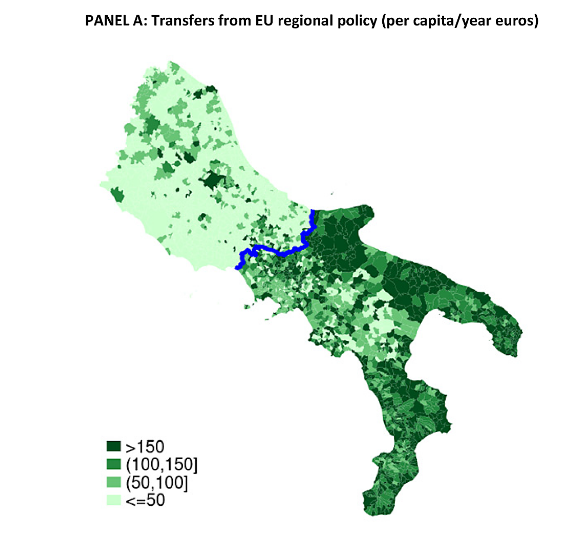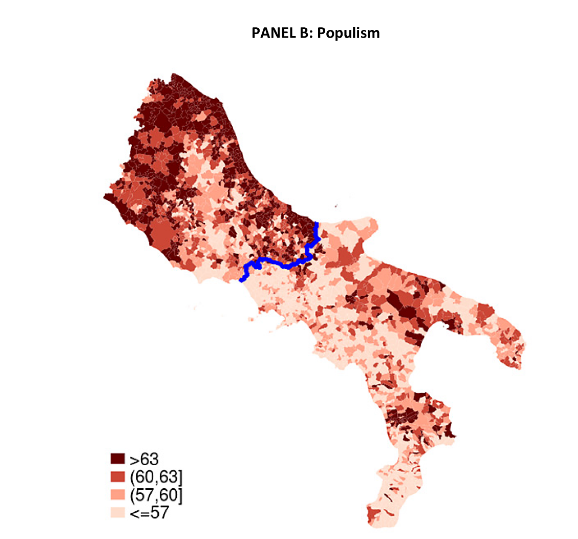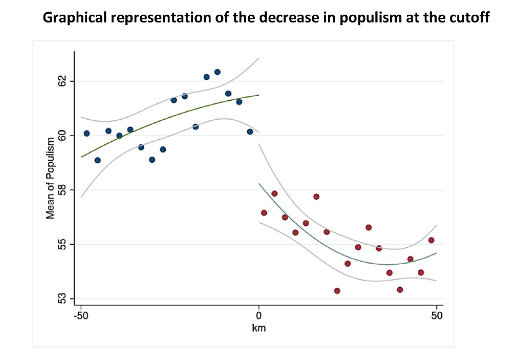Do EU-grants cause or mitigate populism?
Here, in EER, is paper that is interesting in many ways. The authors:
Albanese, Giuseppe, Guglielmo Barone, och Guido de Blasio. "Populist Voting and Losers’ Discontent: Does Redistribution Matter?" European Economic Review 141 (01 januari 2022).
From the abstract:
We show that fiscal redistribution matters by comparing Italian municipalities equally hit by the economic shocks leading to populism but, at the same time, very differently exposed to the generosity of the EU structural funds, because of their locations on the two opposite sides of the geographical border that determines eligibility. Estimates resulting from a spatial regression discontinuity design show that in 2013 general election larger EU financing caused a drop in populism of about 9% of the mean of the dependent variable.
In many ways, the paper is a crystal clear paper with a credible identification strategy. Because transfers from EU structural funds are targeted to "Convergence Objective regions", there are strong discontinuities between municipalities:

and it seems that populist voting is more common in municipalities that do not recieve transfers:

[Parties coded as populist: Movimento Cinque Stelle (Five Stars Movement), Rivoluzione civile (Civil Revolution), Lega Nord (Northern League), Sinistra Ecologia Libert` a (Left Ecology Freedom), Fratelli d’Italia (Brothers of Italy), Partito Democratico (Democratic Party), Centro Democratico (Democratic Centre]
Using a regression discontinuity design, a clear result is identified:

As can be seen, average populist vote share falls from about 61 to 58 percent at the eligibility cutoff. Their conclusion:
We have shown that financial transfers injected by the EU regional policy toward Italian lagging areas have had the ability to reduce the anti-establishment component of populism.
That interpretation is indeed possible. But it seems to me that another interpretation is also possible:
Not receiving EU-grants when neighbouring municipalities (or when some parts of the country) receive grants causes resentment and fuels populism. If there were no structural funds granted to any municipality, how much populism would there be? We do not know.
Thus, despite being a crystal clear paper with a credible causal identification, we do not know if EU-grants cause or mitigate populism - because we do not know the counterfactual.